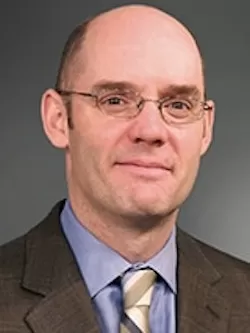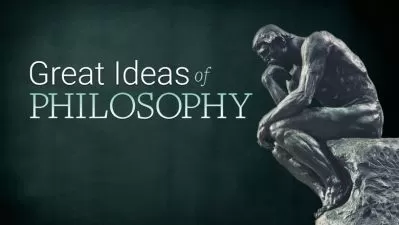Understanding Complexity
Scott E. Page
6:09:47
Description
Recent years have seen the introduction of concepts from the new and exciting field of complexity science that have captivated the attention of economists, sociologists, engineers, businesspeople, and many others.
These include
- tipping points, the sociological term used to describe moments when unique or rare phenomena become more commonplace;
- the wisdom of crowds, the argument that certain types of groups harness information and make decisions in more effective ways than individuals;
- six degrees of separation, the idea that it takes no more than six steps to find some form of connection between two random individuals; and
- emergence, the idea that new properties, processes, and structures can emerge unexpectedly from complex systems.
Interest in these intriguing concepts is widespread because of the utility of this field. Complexity science can shed light on why businesses or economies succeed and fail, how epidemics spread and can be stopped, and what causes ecological systems to rebalance themselves after a disaster.
In fact, complexity science is a discipline that may well hold the key to unlocking the secrets of some of the most important forces on Earth. But it's also a science that remains largely unknown, even among well-educated people.
Now you can discover and grasp the fundamentals and applications of this amazing field with Understanding Complexity. Professor Scott E. Page-one of the field's most highly regarded teachers, researchers, and real-world practitioners-introduces you to this vibrant and still evolving discipline. In 12 lucid lectures, you learn how complexity science helps us understand the nature and behavior of systems formed of financial markets, corporations, native cultures, governments, and more.
What Makes a System Complex?
What defines a system as complex, as opposed to being merely
More details
User Reviews
Rating
Scott E. Page
Instructor's CoursesProfessor Scott E. Page received a B.A. in Mathematics from the University of Michigan and an M.A. in Mathematics from the University of Wisconsin–Madison. He then received his M.S. in Business and his Ph.D. in Managerial Economics and Decision Sciences from the Kellogg School of Management at Northwestern University. He completed his Ph.D. thesis under the guidance of Stan Reiter and Nobel laureate Roger Myerson. He has been a Professor of Economics at the California Institute of Technology and The University of Iowa and is currently Leonid Hurwicz Collegiate Professor of Complex Systems, Political Science, and Economics at the University of Michigan. At Michigan, he is also a Senior Research Scientist at the Institute for Social Research, a Senior Fellow in the Society of Fellows, and the Director of the Center for the Study of Complex Systems. In addition, Professor Page has been a long-time External Professor for the Santa Fe Institute, an interdisciplinary think tank devoted to the study of complexity. In 2011, he was elected to the American Academy of Arts and Sciences.
Professor Page has won outstanding teaching assistant awards at the University of Wisconsin–Madison and Northwestern University, the Faculty Teaching Award at Caltech, and the Faculty Achievement Award for outstanding research, teaching, and service at the University of Michigan.
Professor Page’s research interests span a wide range of disciplines. He has published more than 60 papers in a variety of fields, including economics, political science, computer science, physics, geography, public health, business, philosophy, and complexity. In addition, he has served on dissertation committees for students in more than 10 departments. In recent years, his core interest has been the various roles of diversity in complex adaptive systems, such as economies and ecosystems.
He is the author of Diversity and Complexity; Complex Adaptive Systems: An Introduction to Computational Models of Social Life (with John H. Miller); and The Difference: How the Power of Diversity Creates Better Groups, Firms, Schools, and Societies. All three books were published by Princeton University Press. His most recent book, The Model Thinker: What You Need to Know to Make Data Work for You, provides a toolkit for people to be able to leverage data and information to their advantage.
A popular speaker, Professor Page has appeared at the Aspen Ideas Festival and the World Economic Forum and before numerous corporate and nonprofit audiences around the world, including Google, Ford, Genentech, the International Monetary Fund, and the Association of American Medical Colleges. He has also recorded Understanding Complexity with The Great Courses.
Professor Page lives with his wife and two sons in Ann Arbor, Michigan.

The Great Courses
View courses The Great Courses- language english
- Training sessions 13
- duration 6:09:47
- Release Date 2024/12/02











